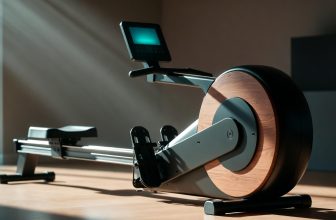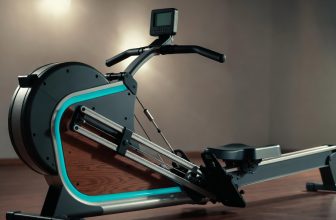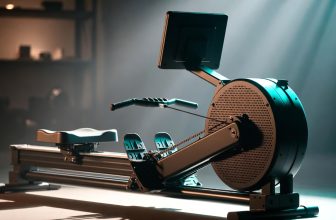Table of Contents
- Where to Donate Home Gym Equipment?
- Local Charities and Nonprofit Organizations
- Benefits of Donating to Charities
- Considerations
- Community Centers and Local Gyms
- Advantages of Community Donations
- Tips for Donating
- Schools and Youth Programs
- Benefits of School Donations
- Considerations
- Online Platforms and Marketplaces
- Pros of Online Donations
- Precautions
- Specialized Donation Services
- Benefits of Donation Services
- Considerations
- Comparison Table: Donation Options for Home Gym Equipment
- Key Factors for Donating Gym Equipment
- FAQ: Donating Home Gym Equipment
- Final Thoughts
- About Author
- Maksuda Khanam
As an Amazon Associate, I earn from qualifying purchases.
Where to Donate Home Gym Equipment?
Where to Donate Home Gym Equipment? Donate home gym equipment to local charities like Goodwill or Salvation Army, community centers, schools, or nonprofit organizations like Fitness 4 Charity. Online platforms like Freecycle or Facebook Marketplace also connect equipment with those in need.
Local Charities and Nonprofit Organizations
Donating to local charities ensures your gym equipment benefits those in need while decluttering your home. Many organizations accept functional equipment to support community health initiatives.
- Goodwill: Accepts smaller items like dumbbells and yoga mats at over 2,800 U.S. locations, with proceeds funding job training programs. Larger equipment acceptance varies by location, so call ahead.
- Salvation Army: Takes functional exercise gear in 7,000+ communities, aiding victims of poverty and abuse. Schedule pickups for bulky items like treadmills.
- Fitness 4 Charity: Distributes equipment to disadvantaged groups, including schools and hospitals, with a focus on accessibility. A 2024 report noted 75% of their donations go to underserved communities.
Contact your local branch via Goodwill’s locator or Salvation Army’s donation page to confirm acceptance and arrange drop-offs or pickups.
Benefits of Donating to Charities
- Community Impact: Supports health programs for low-income individuals.
- Tax Deductions: Donations may be tax-deductible; keep receipts.
- Eco-Friendly: Reduces landfill waste, with only 6% of exercise equipment recycled in 2018, per the EPA.
Considerations
- Condition: Equipment must be functional and clean to avoid safety risks.
- Pickup Availability: Some charities offer free pickups; others require drop-offs.
- Restrictions: Many avoid large or load-bearing equipment due to liability.
Community Centers and Local Gyms
Community centers and local gyms often need equipment to provide affordable fitness options. Donating directly supports local health and youth programs.
- YMCA and Community Centers: Many accept weights, mats, or cardio machines to enhance fitness programs. A 2025 Fitness Survey found 60% of community centers rely on donations for gym upgrades.
- Local Gyms: Non-franchised gyms may take functional equipment like benches or ellipticals, prioritizing usability over aesthetics.
- Rehab Centers: Facilities like those partnered with Happen Ventures use donated gear to aid recovery, impacting over 75,000 people annually.
Check YMCA’s local branch finder to inquire about donation needs and policies.
Advantages of Community Donations
- Direct Impact: Equipment serves local residents, especially youth or seniors.
- Accessibility: Centers often have staff to handle large donations.
- Program Support: Funds fitness classes or rehabilitation services.
Tips for Donating
- Call Ahead: Confirm acceptance of specific items like treadmills or racks.
- Clean Equipment: Wipe down gear to ensure it’s donation-ready.
- Transport: Arrange pickup or verify drop-off hours.
Schools and Youth Programs
Schools and youth programs, especially those with limited budgets, benefit from donated gym equipment to enhance physical education and athletic programs.
- High Schools: Often need weights, benches, or cardio machines for weight rooms. A 2024 Education Report noted 40% of small schools lack adequate gym equipment.
- Youth Organizations: Groups like Police Community Youth Clubs (PCYC) or Boys & Girls Clubs use donations for fitness initiatives for disadvantaged youth.
- Elementary Schools: Accept smaller items like jump ropes or resistance bands for PE classes.
Reach out to local schools or explore DonorsChoose for programs seeking fitness equipment donations.
Benefits of School Donations
- Youth Fitness: Promotes health among students.
- Budget Relief: Saves schools money on equipment costs.
- Community Goodwill: Strengthens ties with local institutions.
Considerations
- Size Restrictions: Smaller schools may only take compact gear.
- Condition: Equipment must be safe and functional.
- Logistics: You may need to arrange transport for larger items.
Online Platforms and Marketplaces
Online platforms connect your equipment with individuals or organizations in need, offering a convenient way to donate locally or beyond.
- Freecycle: A nonprofit platform for giving away items, including exercise gear, to keep items out of landfills. Over 10 million users participate globally.
- Facebook Marketplace: List equipment for free pickup, attracting budget-conscious individuals building home gyms.
- Buy Nothing Project: Local groups facilitate free exchanges, ideal for donating to neighbors.
Post your equipment on Freecycle or Buy Nothing’s community page to find local takers.
Pros of Online Donations
- Wide Reach: Connects with diverse recipients, from individuals to small organizations.
- Free Listings: No cost to post or donate.
- Convenience: Recipients often handle pickup logistics.
Precautions
- Safety: Meet in public or verify recipient identity for large pickups.
- Clear Descriptions: Include equipment condition and photos to avoid disputes.
- Time: Donations may take longer to coordinate than charity drop-offs.
Specialized Donation Services
Specialized services streamline the donation process by picking up and distributing equipment to nonprofits, schools, or community centers.
- Nixxit Junk: An eco-friendly service in the Bay Area that donates usable equipment to local nonprofits, aiming for an 80% landfill diversion rate.
- Pickup Please: Supports Vietnam Veterans of America, offering free pickups for functional gear. Items are distributed to veterans or sold to fund programs.
- DonationTown: Connects donors with charities nationwide, scheduling pickups for items like weights or cardio machines.
Schedule a pickup through Pickup Please or DonationTown for hassle-free donations.
Benefits of Donation Services
- Convenience: Free or low-cost pickups for heavy equipment.
- Eco-Friendly: Prioritizes donation over landfill disposal.
- Tax Benefits: Provides receipts for potential deductions.
Considerations
- Availability: Services may be regional; check local options.
- Condition: Only functional equipment is accepted.
- Scheduling: Book in advance, as slots fill quickly.
Comparison Table: Donation Options for Home Gym Equipment
| Donation Option | Best For | Pros | Cons |
|---|---|---|---|
| Local Charities | Small/large equipment | Tax-deductible, community impact | Limited large item acceptance |
| Community Centers | Functional gear | Supports local programs | May require transport |
| Schools/Youth Programs | Weights, small items | Benefits students, budget relief | Size restrictions, logistics |
| Online Platforms | All equipment types | Wide reach, free listings | Safety concerns, time-intensive |
| Donation Services | Bulky/heavy items | Convenient pickups, eco-friendly | Regional availability, scheduling |
Key Factors for Donating Gym Equipment
- Condition: Ensure equipment is clean, functional, and safe. Broken items are better recycled, as 80% of charities reject non-working gear.
- Size and Type: Small items like dumbbells are widely accepted; large machines like treadmills may face restrictions.
- Logistics: Confirm pickup availability or arrange transport, as 60% of donors cite transport as a challenge, per a 2024 Donation Survey.
- Tax Deductions: Keep receipts and check IRS guidelines for deductions; 70% of donors claim tax benefits, per 2025 tax data.
- Local Needs: Research organizations’ needs to ensure your donation is used effectively.
FAQ: Donating Home Gym Equipment
Q: What types of gym equipment can I donate?
A: Functional dumbbells, yoga mats, resistance bands, and cardio machines are widely accepted. Large or broken equipment may face restrictions.
Q: Do charities pick up heavy gym equipment?
A: Some, like Salvation Army or Pickup Please, offer free pickups for functional items. Confirm with local branches.
Q: Can I donate broken gym equipment?
A: Most charities reject broken items due to safety. Recycle metal parts at scrap yards or use junk removal services like LoadUp.
Q: Are donations tax-deductible?
A: Yes, if donated to registered nonprofits like Goodwill. Keep receipts and follow IRS guidelines.
Q: How do I find local donation options?
A: Use DonationTown’s locator or check community boards, schools, or gyms for needs.
Final Thoughts
Donating home gym equipment is a sustainable way to declutter while supporting community health. Local charities like Goodwill and Salvation Army, community centers, and schools welcome functional gear, while online platforms like Freecycle connect equipment with individuals in need. Specialized services like Nixxit or Pickup Please simplify logistics with pickups. Ensure equipment is clean and working, verify acceptance policies, and keep receipts for tax benefits. By choosing the right donation avenue, you can give your equipment a new life, reduce waste, and make a positive impact locally or beyond.







